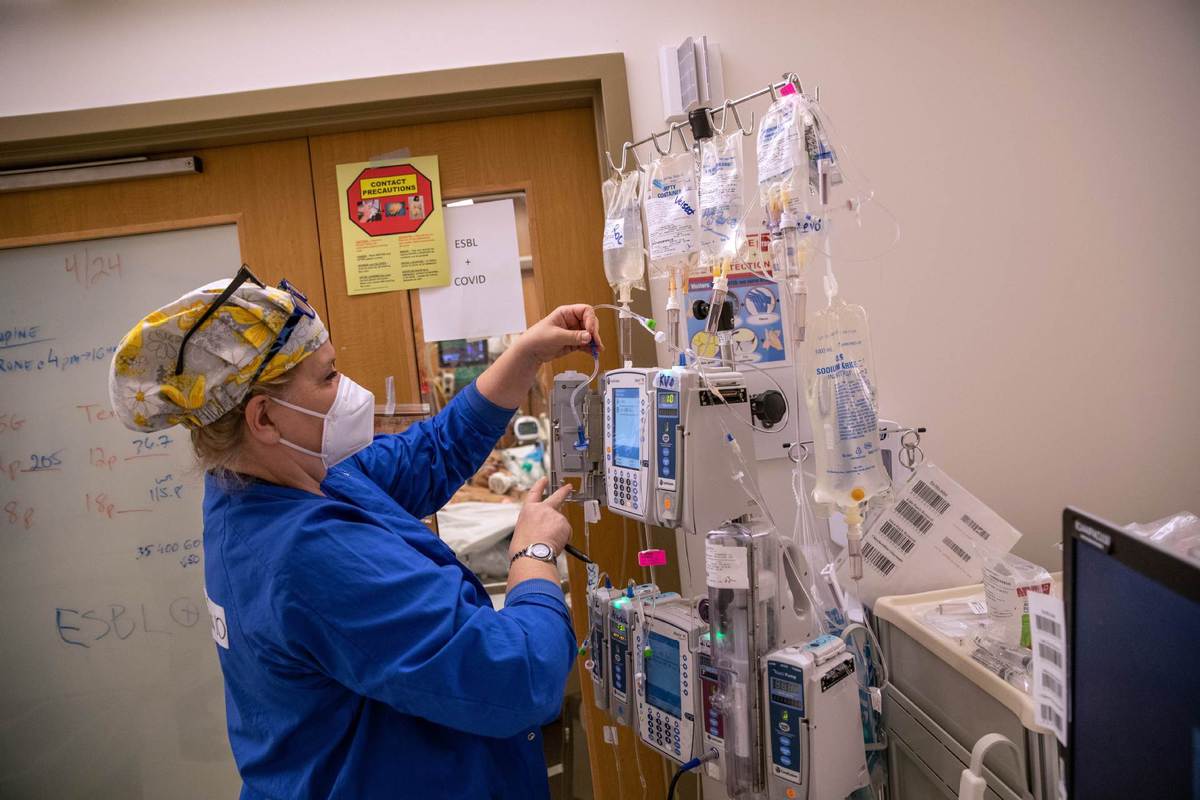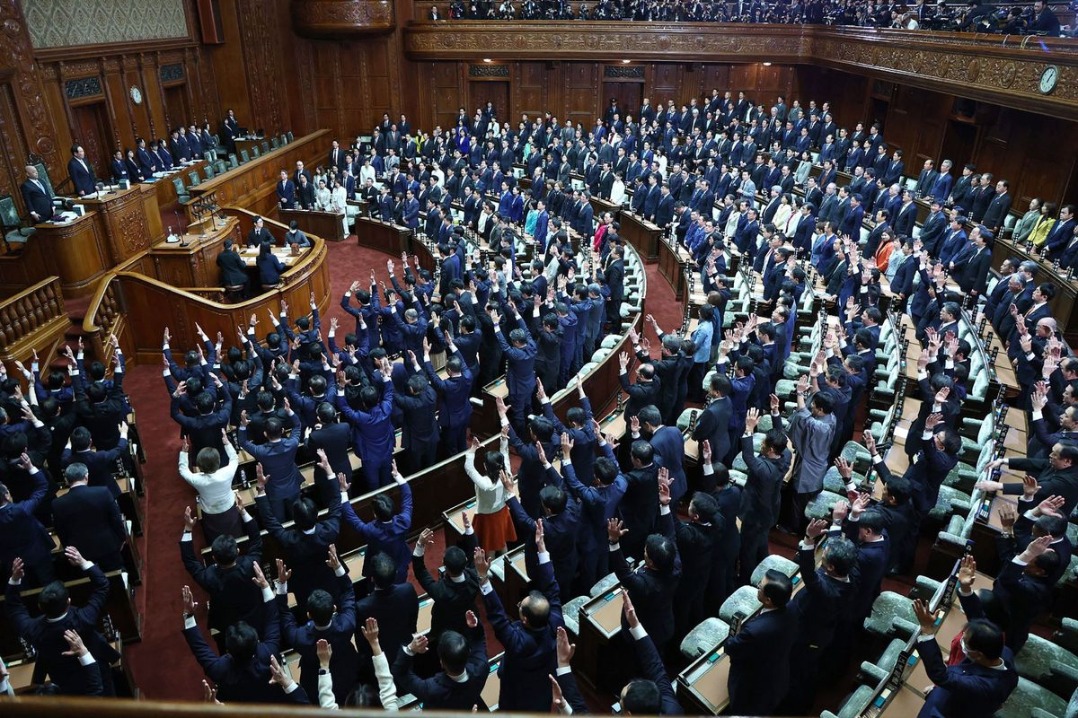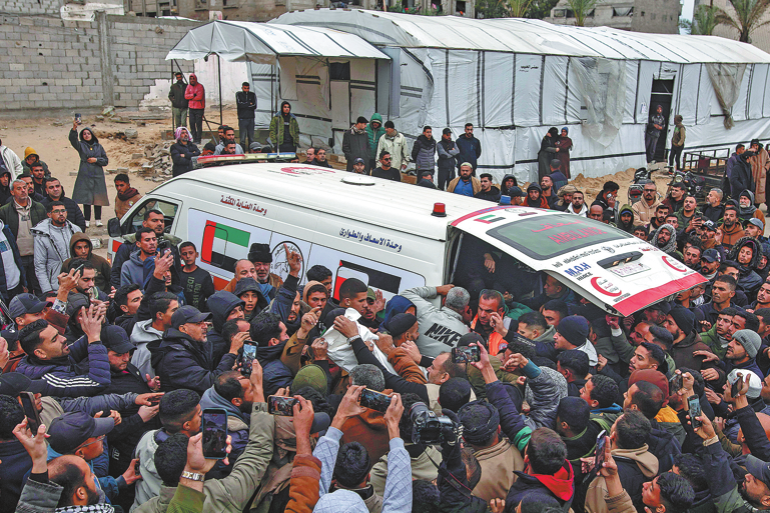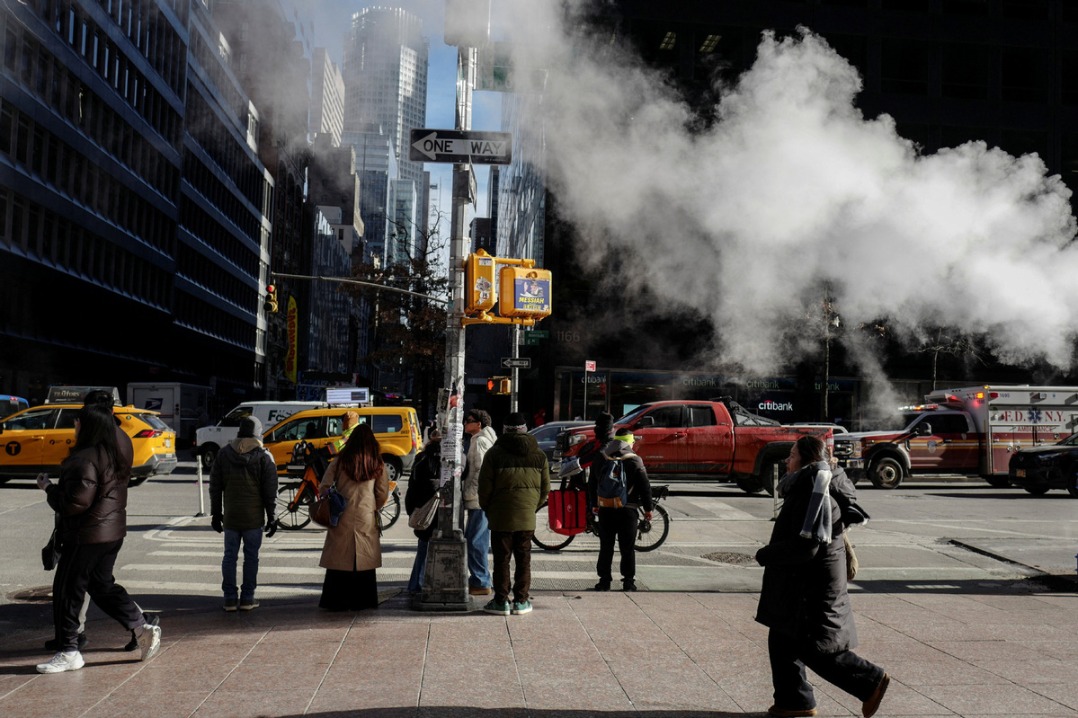US virus deaths could multiply


The Trump administration is privately projecting a steady rise in the number of daily deaths from COVID-19, reaching about 3,000 on June 1, nearly double the current level of about 1,750, and 200,000 new cases each day by the end of the month, up from about 25,000 cases now, according to The New York Times.
The projections are based on modeling from the Centers for Disease Control and Prevention (CDC), according to internal documents the newspaper said it obtained.
On Sunday, President Donald Trump said deaths in the US from the virus could reach "75, 80 to 100,000 people", twice as many as he had forecast two weeks ago.
The White House disputed the report, saying the new projections hadn't been vetted, the Times said.
"This is not a White House document, nor has it been presented to the coronavirus task force or gone through interagency vetting," said Judd Deere, a White House spokesman. "This data is not reflective of any of the modeling done by the task force or data that the task force has analyzed."
There were more than 1.16 million cases of novel coronavirus infections in the US — or nearly one-third of the global total — according to data from Johns Hopkins University. More than 67,900 people in the country have died from COVID-19, according to Johns Hopkins.
At least seven more states — California, Florida, Indiana, Kansas, Missouri, Nebraska and West Virginia — began allowing certain businesses or regions to reopen on Monday.
California Governor Gavin Newsom said that some counties will gain autonomy to reopen, and certain retailers statewide could offer curbside pickup as early as Friday.
In Florida, restaurants, stores, museums and libraries are allowed to reopen with fewer customers, except in the most populous counties, which have seen the majority of cases.
At the Massachusetts State House in Boston, hundreds of protesters demonstrated against closures ordered during the pandemic.
The demonstrators called for nonessential businesses to reopen and designated Governor Charlie Baker's stay-at-home order as unconstitutional. Some protesters in the crowd wore masks, while others didn't.
New York Governor Andrew Cuomo on Monday gave details about the process his state plans to follow for reopening as the coronavirus continues to decline in the state.
Cuomo said that 226 more people in the state had died of COVID-19. It was the lowest one-day figure since March 28, and 70 percent below the one-day tolls of early April, when New York was reporting nearly 800 new fatalities a day.
Cuomo listed seven requirements that must be met before restrictions could be eased, including a 14-day decline in hospitalizations, or fewer than 15 a day, and a 14-day decline in virus-related hospital deaths, or fewer than five a day.
The US has been flooded with more than 160 antibody tests for the coronavirus that haven't received approval from the Food and Drug Administration, but now the FDA is requiring companies with an antibody test to submit an application for emergency-use authorization and requiring them to meet standards for accuracy.
Accurate antibody testing is a potentially important tool for public health officials assessing how extensively the coronavirus has swept through a region or state.
The Agriculture Department said Monday that it would spend $470 million to buy more surplus food amid the widespread disruption to the food supply.
The $470 million will be spent as part of a broad authority that the USDA has had since 1935 that allows for food purchases to help both farmers and people in need through school meals, food banks and other programs.
Costco is temporarily limiting meat purchases to three items per customer, the company announced Monday. Meat items include poultry, beef and pork.
Other grocers have adopted similar limits on meat purchases. Kroger, the largest US supermarket chain, last week placed purchase limits on ground beef and fresh pork.
The limits are because of high demand from shoppers as many meat suppliers have temporarily closed their factories because workers are falling ill to the coronavirus.
The United Food and Commercial Workers International Union estimated last week that 20 meatpacking and food processing workers have died so far.
Tyson Foods said Monday that it expects more meat plant closures this year. The company also said it will continue producing less meat than usual as workers stop coming to work during the outbreak.
Tyson said that the pandemic will disrupt the meat supply chain for many more months despite an executive order from Trump last week to keep processing plants open.
J. Crew on Monday became the first big US retailer to go bankrupt during the pandemic and the country's near economic shutdown. The store chain has had problems for years, unable to revive its preppy clothing line, and is deeply in debt.
The retailer filed for Chapter 11 bankruptcy protection after reaching a deal with a group of lenders and bondholders to swap about $2 billion in debt for an 82 percent stake in the reorganized J. Crew. The filing allows it to stay in business while cutting its debt.
































